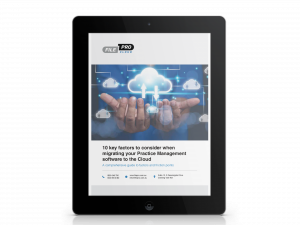How to tap into potential is an age-old question, how to do this through meaningful conversation in the context of remote working is a relatively new one.
Remote supervision is a challenge for both those supervising and those being supervised. Supervisors we work with worry that lawyers will not work as hard or as efficiently (though there is research to indicate otherwise). They also feel ill-equipped with the tools to engage and motivate lawyers in the context of remote working. In the past, supervisors often used impromptu opportunities to guide and coach, e.g., on the walk back from a client meeting or in the office kitchen making a coffee. Remote working removes the unplanned and unexpected nature of coachable moments.
“A coachable moment is an informal, usually unplanned or unexpected opportunity for a manager/ supervisor to have a conversation with an employee aimed at facilitating the employee to problem solve or learn from a work experience. It is aimed at helping them to learn rather than instructing, directing or teaching them” (University of Wollongong, 2015)
The answer is to enable coachable moments through meaningful conversations. When we ask supervisors to reflect on their own experience and identify what has helped them grow and develop the response has been consistent. People most value the conversations where they feel seen and heard, where they feel understood and stretched and where the conversation and feedback are tailored to their individual needs. The world we operate in is increasingly complex and more than ever we need to tap into the wisdom of all our people and all their strengths in order to solve the challenges we face.
We need to create an environment where people actualise their potential and thrive. This requires us to focus on enabling high levels of both performance and wellbeing.
Meaningful conversations are conversations that have an impact on the connection and understanding between people and are characterized by deep listening, empathy and sense-making
Research by psychologist Adam Grant points to the importance of positive and regular reinforcement. He suggests that the regularity of meaningful conversation is far more important than the medium. This is an important point to highlight as many supervisors are concerned about what can and can’t be done virtually. In fact, it matters less whether you call, text, email or use a virtual video platform. What matters is that you are connecting with people regularly.
The next question without fail is “How can I have a meaningful conversation, especially remotely?”
Supervisors are often surprised to hear that the ‘how’ is neither complex or novel but does require intentionality and discipline.
At the very essence of a meaningful conversation, whether in person or virtually, is the conscious choice to hold space, listen, reflect and question. We draw inspiration for this from a number of fields; primarily Dialogic Organisational Development techniques (Bushe & Marshak, 2014) and Adaptive Leadership (Heifetz & Linsky, 2009).
Here are four suggestions on how to have more meaningful conversations within the context of remote working.
Holding Space
Holding space is the ability to provide a safe, open and warm environment for people to show up authentically and fully in the moment. It starts with being in the right mindset, that is, consciously choosing to be present, stay curious, be comfortable with silence, and be aware of how you may be influencing the interaction. Part of holding space includes being aware of and calling out the inherent power dynamics in the conversation (especially if the conversation is happening at a group level). According to Bushe & Marshak (2014), “the simplest way to understand and practice holding is simply to do nothing .…. don’t let yourself fill it”.
“Every piece of doing requires the strong presence of non-doing to anchor it” – Chris Corrigan, 2015
Notice and seize opportunities to have meaningful conversations and consider the following:
- What is your intention?
- How do you want to show up?
- How can you adopt a mindset of curiosity and care?
- How do you want the other person/people to feel?
Listening
We all know listening is a critical communication skill. The depth of our listening can either detract from or enhance the quality of our conversations. Our intention with having meaningful conversations is to deepen our relationships and ensure the person or people we are interacting with feel valued, safe and connected. An understanding of the Four Levels of Listening (Scharmer, 2015) is useful here. To listen deeply, we need to listen with a sense of curiosity and non-judgement, and to listen without expectation of what may or may not emerge.
Practice using the four levels of listening.
- Level 1: Listening from what you already know
How am I projecting my own view?
- Level 2: Listening to notice what is different
How does this person think differently to me?
- Level 3: Listening with empathy
What is this person’s experience, how are they feeling, what is important to them?
- Level 4: Listening for what is emerging
What makes sense now that did not before?
Reflecting
Part of being fully present, listening and connecting deeply, is the ability to get on the metaphorical balcony and notice what is happening from multiple perspectives, the ability to reflect in action, on action (Argyris and Schön, 1974). This reflection allows you to test your assumptions and give in the moment feedback. For example, you may say during a conversation with a lawyer “I am noticing every time we approach this topic, we get distracted.” With noticing and reflecting, there is no question, rather just a sharing of an observation.
Be disciplined in asking yourself:
- What am I noticing?
- What assumptions am I making about what I am noticing?
- How might I test my assumptions in the moment?
Questioning
The nature of questioning in meaningful conversations is different to asking questions to gather information. The intention is to stimulate new possibilities in the way we think, engage and act. Questions that are directive or judgmental for example, “why didn’t you complete the report on time?” do NOT constitute meaningful dialogue. Rather, start questions with words like “I wonder …..” or “I am curious about ….” or “tell me more about …” or “why is that important to you?” For example, “I am curious about what got in the way of you completing the report on time?”. This type of questioning leads to deeper thinking and reflection.
Try some of the following questions to guide your next conversation:
- What is the most important thing for us to talk about right now?
- What are you enjoying right now?
- What about this gives you energy?
- What are you finding challenging?
- What about that is challenging?
- What are you hoping to achieve?
- Why is this important to you?
- What is going to get in your way?
- How can I support you?
- What else can I bring you into?
- Is there anything else you need right now?
By creating a culture where supervisors seize coachable moments to have meaningful conversations, everyone, including the organisation can thrive. We believe that meaningful dialogue is possible and needed more than ever in the context of remote working.
About the Author
Heather Watson and Attiyya Malik are Leadership Consultants and Executive Coaches at Bendelta. If you are interested in meaningful dialogue and coachable moments and how to lead in a virtual world, contact Heather on [email protected] and Attiyya on [email protected].


